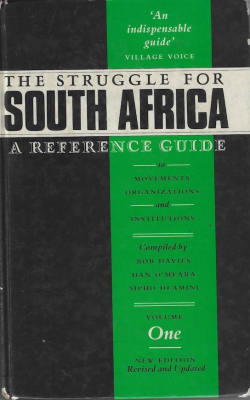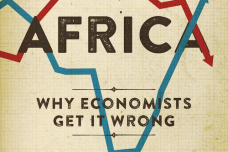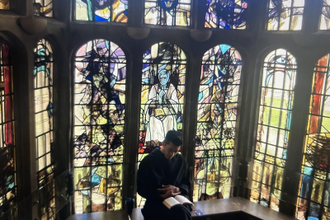The Oppressor's Playbook: Yet another apartheid history lesson

In the late 1980s, whilst completing a post-grad journalism course in London, I came across a remarkable reference set published by the venerable Zed Books, publisher of independent academic analyses of global human rights and political issues. The two-volume publication was an effective guide to apartheid, the world's most minutely legislated racist oligarchy. The publishers had taken the apartheid state exactly at its word, and reproduced, for a world-wide global public to read at leisure, the excruciating legal minutiae that made life beyond unbearable for black South Africans. The detail of this vast, overblown system of citizen oppression could freely be accessed by any casual researcher through the metronome of the SA Government Gazette which published new laws as they were passed. There it was, in all its grotesquery, in black and white, pushed out with depressing regularity, each new restriction adorned at the top with the government crest.
As someone who was exposed from birth to both the pre-1980 apartheid-like arrangement in Ian Smith's Rhodesia, and apartheid when at university, I, like millions of black people, and many whites born into the situation, developed a 'nose' for not only the dreadful cruelty of these systems, but also their absolute lunacy - and unintended hilarity. From this has developed the often dark and brutal sense of humour that became a watchword and survival tactic for those of us who had to live in the system - a situation that has been brilliantly milked by razor-tongued Soweto-born comedian Trevor Noah. That Noah, still a young man, experienced the tail end of apartheid's bizarre pronouncements, is a reminder of how recent these changes are. As such, a re-reading of Zed's inspired two volume guide to apartheid at its height remains a must-have text, and convenient roadmap to dictatorships everywhere.
As a long-time resident of post-1994 South Africa, I still, regularly, just through random reading, come across extremes of the system that even I had missed. Several recent gems include: finding out that, for almost a decade, the official (white) 'Miss South Africa' winner stood on stage at Julia Morley's Miss World contest with a young black woman who had won a segregated competition funded by a public-spirited (white) Joburg businessman who, besides giving a sly finger to the authorities, thought that black girls should have a chance too. During the years of this pretzel-like attempt to be 'fair', oddly, neither girl won. Eventually Morley, perhaps working out that Miss World did not look so good with this arrangement, banned South Africa until the local competition was open to all.
Other examples included a recent news clip that recalled the fate of two men, one white and one black, convicted of a murder. The black man was hung, the white got a prison sentence. Then there was the case of the local government running top surf spot Jeffrey's Bay - one of the global surfing's most celebrated breaks. A bye-law back in the day 'prohibited men with long hair'. Really? So as long as white blokes all had a short back and sides, the forces of evil (aka 'communism') could be foiled? There was also the well-publicised brou-ha-ha about Anna Sewell's classic children's book Black Beauty (it was on the banned book list, mate - obviously). This led to well-worn jokes about Enid Blyton's Noddy likely being next on the banned list 'because Noddy was driving underage without a licence and appeared to have a gay relationship with Big Ears'. Recently my store of ever-new examples of idiocy under the system grew when I came across a report of a discussion that had taken place within apartheid circles about the evils of kids playing 'Snakes and Ladders' - 'because it involved dice'.
So it was not entirely unexpected that, in reading a newly acquired 1979 book by two lauded academic observers of South African society that I came across formal evidence of apartheid's fear of the 'Roomse gevaar' - or 'the Roman menace.'
In this insightful book, written at the height of the system, entitled The Rise and Crisis of Afrikaner Power, by lauded academics Heribert Adams (Canada) and Hermann Giliomee (SA), the social scientists examine aspects of Afrikaner thinking and the exposition of the system from various standpoints, including the deep-seated influence of Calvinism within the society, stating:
"The Calvinist doctrine among some segments of Afrikanerdom does not manifest itself only on the race issue. Racial prejudice is but a facet of a bigot syndrome that includes other outgroups. In this vein, Dutch Reformed Church circles still refer to the Catholic Church as the 'Roomse gevaar' (Roman menace). Synods regularly express alarm over statistics that the Catholic Church, comprising presently approximately six percent of the population, could become stronger through Southern European immigrants. In 1975, the Cape Synod without dissent adopted a motion making an 'urgent call' on its members to have more children as a means of 'combating the growth of the Catholic Church.' Church members are urged not to frequent Catholic institutions, such as hospitals, in order to keep uninfected." The book continues by stating that no other 'outgroups' had received this level of fear-based attention within the Dutch Reformed Church.
In 1994, the world celebrated the dismantling of the odious system of apartheid. Yet the 'bigot syndrome', like a persistent wart, continues to reappear in new guises. We have been there, and done that. Zed's Apartheid Handbook should be re-issued. It is the handiest of checklists for those of us looking out for new signs of trouble wherever in the world it may occur.


















